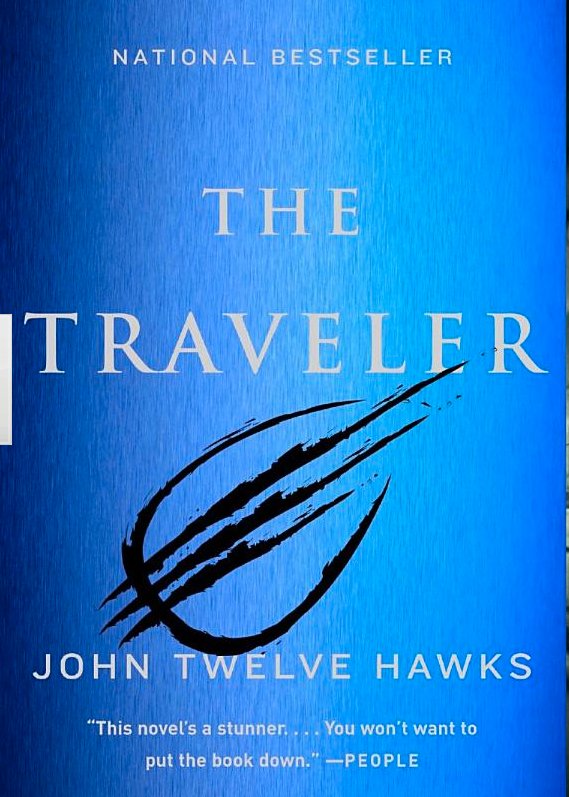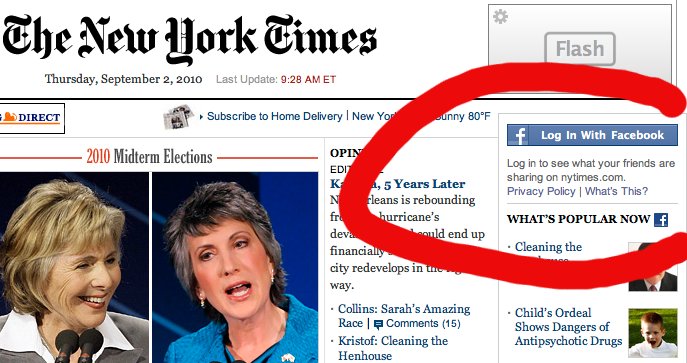I wish more farmers would put out self-service roadside stands. This one is near Sandy Ridge, five miles or so north of Acorn Abbey. I bought a bale of hay, but I’m not yet ready for pumpkins. Next month, when the weather is nice and cool, I’ll make pumpkin soup and pumpkin pie.
A real monastery in Stokes?
While driving back from Cana, Virginia, today (a trip to get organic fertilizers — more on that later) I took a different route home on N.C. 704 through northern Stokes County. I was surprised to see a sign pointing to a Greek Orthodox monastery. I couldn’t resist driving part way down their long driveway and taking a couple of pictures.
It’s interesting how often one finds something unexpected in Stokes County. There’s a farming community of Hare Krishna devotees not far from me. The Greek Orthodox monastery is only about 12 miles away. Stokes is beautiful and is relatively unspoiled and undeveloped. With luck, maybe more alternative types will discover Stokes County in years to come.
Tough tilling
That’s young turnips in the raised bed.
It’s amazing how fast that half an inch of rain that fell Wednesday dried out when the 90-degree heat returned. When I started tilling in the garden area Friday morning, the moisture was barely noticeable. The new tiller is very aggressive, though, so in spite of the sticks and rocks I made a pretty good first pass over the garden area.
It’s good to know something about the history of one’s soil. Two and a half years ago, my garden area was the floor of a one-acre area covered with mature pine trees. The trees and stumps were removed in the early spring of 2008. Then everything having to do with the garden went on hold for the next year and a half while all my time went into building the house. To make matters even worse in the garden area, that’s where the loggers put the heavy machine that stripped the limbs off the trees and loaded them onto a truck parked out of the road. The garden area was packed by the heavy machinery, and there were sticks and bark everywhere. Much of that has rotted in the last two years, though.
The pine trees that I took down in 2008 had been there since about 1965. Before that, my acre of land that is open to the sun was a farmer’s field, worked mostly with a mule. My land is too sloped and too irregularly shaped to be easily worked with a tractor. Maybe the mule died, or something, and someone decided to give it up and plant trees in the field.
The good news from my morning of heavy tilling is that the garden soil is in better shape than I thought. There is more humus and less clay than I was expecting. My task this fall is to work as much compost and organic fertilizers into the soil as possible, then plant winter rye as a cover crop. I’m hoping that I’ll have fairly decent soil by spring. And of course I’ll do everything possible to improve the soil each year.
I’m planning to be strictly organic in the garden area. I don’t mind using fertilizer on my grass, and I used fertilizer in my straw-bale experiment, but I don’t use herbicides and insecticides anywhere. I take that back. I used a bit of poison-ivy killer a couple of years ago.
The tiller, by the way, is not a large tiller, but it is one of the fancier models with counter-rotating rear tines. This type of tiller does a better job, and it’s easier to use. The front wheels are driven by the engine and pull the tiller forward. The tines try to pull the tiller backward as they churn. But somehow the machinery is made such that the tiller creeps slowly forward as it grinds up the soil inside the hooded area that covers the tines. Generally one hand is enough to manage the thing.
Rain at last
The most miserable hot and dry spell of the summer finally came to an end tonight. Who’d have thought that we’d have that hot and dry spell in September?
Unfortunately, it was a smallish storm that didn’t benefit a lot of people, but it left .5 or .6 inch here. That’s enough to save my grass and kick-start all the grass seed that Ken sowed before he went back to school. The rain also will soften the ground enough that I can finally go ahead and give the garden area its fall tilling.
A chocolate fit made me do it
I had a chocolate fit this evening, and I thought of brownies. If I’ve ever made brownies before, I don’t remember it. As usual, I turned to the 1943 edition of Irma Rombauer’s Joy of Cooking. She has a recipe for brownies that uses molasses mixed with the sugar. I substituted olive oil for the melted butter, and I used whole wheat flour. Not that much can be done to lessen the crime of making brownies.
September: It's the new August
I had expected some relief in September from the hot, dry summer. But it’s been three weeks since we had rain, and temperatures are still hitting 90. The forecast for the next week looks much the same.
The fields are full of yellow flowers, though. That’s the best thing about this time of year.
The National Weather Service released new long-range predictions yesterday. For this part of the country, above-average temperatures and below-average precipitation are what we can expect for at least the next two weeks. There seems to be some hope of a change in October.
John Twelve Hawks and the Vast Machine
It’s been a long time since I’ve kept up with what’s new in science fiction. In the early 1980s, I ran a very popular and very literate computer bulletin board (remember those?) called Science Fiction Writers Network. Some of the big names were regulars there, including most notably Orson Scott Card, who won both the Nebula and the Hugo awards for his 1985 classic, Ender’s Game. I even helped throw a congratulatory dinner for Card to celebrate. What a Golden Age that was.
And what an innocent age it was, when only nerds had computers and knew what to do with them. A friend of mine used to shake his head at me when he saw me in front of the computer, saying, “One of these days it’s going to tell you what to do.” It was a joke then, but he was right: Our computers have been turned against us.
That is the theme of John Twelve Hawks’ Fourth Realm Trilogy. The books are The Traveler (2005), The Dark River (2007), and The Golden City (2009). The Traveler was a New York Times bestseller. A little Googling reveals that 20th Century Fox is making a film version of The Traveler, for release, I believe, in 2012. I was too distracted by my job responsibilities in San Francisco to notice these books when they first came out. But the buzz about good books continues long after they’re released, and eventually you hear about them. Plus, if you wait, you get to read the whole trilogy straight through, instead of having to wait for the next book. I became aware of John Twelve Hawks’ books from a comment on my recent post about privacy on the Internet.
All summer, I’d been hankering for a fast-moving science fiction thriller, a hot read. John Twelve Hawks’ trilogy really hit the spot. I rushed through the three books in not much more than three weeks because I didn’t want to put them down.
The story is set in the here and now. The plot has to do with what Twelve Hawks calls “the Vast Machine” – the international system of surveillance and computer snooping that now spies on all our lives, in the name of security. The main character, Gabriel Corrigan, comes to understand who is spying on us and why, and he sets out to defeat “the Vast Machine” and organize resistance to it.
Twelve Hawks’ writing style is very cinematic, with the characters always on the move from city to city or in exotic places such as the underground rivers of London or the rocky skelligs off the west coast of Ireland.
John Twelve Hawks is a pseudonym. His identity is not known, and he lives off the grid. He communicates with his editor using the Internet or over an untraceable satellite phone with a voice scrambler.
There is a long history of fiction that draws our attention to the state of the real world. The most obvious example, of course, is George Orwell’s 1984. Much of Charles Dickens’ work is in this category. Dickens’ brought some reforms against the horrors of 19th century industrial England: its squalor, its filth, its debtors’ prisons, and its wretched working class. Visionary authors often see these things before the rest of us.
Cui bono?
If I have a complaint about John Twelve Hawk’s books, it’s that he limits his theme to issues of surveillance, Internet snooping, and the secret databanks that know who-knows-what about all of us. As I see it, the people who are bringing us the Vast Machine have a much larger agenda having to do with corporate exploitation of people and resources, corporate usurpation of government, and endless war. Twelve Hawks knows that the stuff on television is not news but is, rather, a pig circus of propaganda created to distract us, misinform us, and turn us into insatiable consumers.
What in the world is really happening today? Most people have no idea. The international intelligentsia are well aware of the fact that Americans are now the most propagandized people in the world. The people of the former Soviet Union at least knew that they were being fed propaganda, and some of them were quite skillful at working out whose interests the propaganda served. But in the United States today, Americans relish their propaganda and actually pay to get it (through their huge cable bills), and propagandists make enormous profits. The meat and potatoes of American propaganda is Rupert Murdoch’s Fox News. Though it’s run by Roger Ailes, a media consultant for three Republican presidents, and though Fox News actually has contributed to right-wing political campaigns, and though, to my lights, Fox has been wrong about everything that matters since it came into existence in 1996, a poll in January 2010 found that Fox is the most trusted of the television news networks (49 percent trust Fox). This blows my mind. I often think that the ignorance of the American ignorati is as incomprehensible to the intelligentsia as the intelligence of the intelligentsia is incomprehensible to the ignorati. But that is how propaganda works. It flatters ignorance, appeals to prejudice, stokes fear, makes everything simple and black and white, and is always going on about god. By the way, it was not Sinclair Lewis who said, “When fascism comes to America, it will be wrapped in the flag and carrying the cross.” But whoever said it (Harrison Salisbury?) was right.
I was amused a while back after I left a comment on a newspaper web site making fun of the spectacular wrongness of someone who was repeating Fox News talking points. He shot back at me an insult about what I “watch” to get my news – some loony left network like CNBC or MSNBC, no doubt, he said. What I found amusing was that he thinks I “watch” something on cable to get news. In fact I don’t watch anything at all. I read.
Most Americans have neither the time nor the skills to try to figure out what’s really going on in the world today. Even the Tea Party crowd, though they are blinded by propaganda, sense that something is terribly wrong. But because they watch so much corporate and right-wing propaganda on Fox they get everything exactly backward. Government is not the problem. Corporate power and corporate greed are the problem. Corporate propaganda constantly demonizes government, because government (including the judiciary) is the only entity that has a chance of restraining corporate corruption, corporate predation, corporate exploitation, and the corporate takeover of government.
This corporate takeover of government may be almost complete, as is clear from the difference between Barack Obama’s campaign rhetoric vs. the way he has actually governed. No backroom deals, said candidate Obama. And then one of the first things he does as president is meet secretly with the health insurance industry to make sure that health care reform is a bonanza for corporate interests. Candidate Obama talked about the importance of “net neutrality” to prevent corporate domination of the Internet, but recently we learned that President Obama’s FCC was meeting secretly with Google and Verizon to work out deals that would permit corporations to strangle the Internet to get obscene profits by turning the Internet into yet another delivery system (like cable) for corporate propaganda and brain-dead entertainment. All that subversive, independent stuff would be pushed aside, starved for bandwidth, and drowned out. The Washington establishment is always talking about “stakeholders.” The stakeholders are always corporate, and the important meetings are always secret.
Open source intelligence
How does one get past the propaganda? First of all, one turns off one’s television. And then one becomes a practitioner of open source intelligence. Ironically, the same Internet that permits corporate and government snooping on private citizens is the best tool we have for open source intelligence. That is one of the reasons that corporate interests want a corporate takeover of the Internet – we’d have to consume what they throw at us, while our ability to seek our own sources would be strangled. The kind of sources that can inform an open-source understanding of the state of the world are the kind of sources that Fox-watchers are usually completely ignorant of. When these open sources do get media attention (for example, WikiLeaks), the propaganda machinery will immediately step in to demonize it, marginalize it, and, if possible criminalize it. Because elites now work almost entirely in secret (while denying privacy to the rest of us, as John Twelve Hawks points out), leaks from whistleblowers are now our best hope for breaking through the razor wire of secrecy behind which elites hide.
Though the daily newspapers in the United States are now little more than zombies, there are still organizations and people with a commitment to truth. An important part of an open-source regimen are books and articles by authors who haven’t sold out or become lazy.
For example, Janine Wedel’s Shadow Elite: How the World’s New Power Brokers Undermine Democracy, Government, and the Free Market, helps us understand how, because of privatization and outsourcing, the public and private sectors have been blurred so much that corporations now write their own regulations. Wedel also showed us what the Neocon cabal which brought us the invasion of Iraq has in common with the elites who “privatized” public assets and seized money and power in the breakup of the old Soviet Union.
Naomi Klein, in a magisterial article in the September 2004 issue of Harper’s, “Baghdad year zero: Pillaging Iraq in Pursuit of a Neocon Utopia,” shows us how the invasion of Iraq was a business product, jointly created by government and corporate forces, in which the publicly owned wealth of Iraq (mostly oil) was to be divided up among corporate players, with the intention of turning Iraq into a utopia of deregulation and profit. The profits would be private, of course, and the costs were to be socialized and paid for by the American people. The fact that people would die (thousands of Americans and hundreds of thousands of Iraqis) meant nothing. Everything they said to sell the war was a lie.
The Washington Post is a zombie, but they got in a rare good lick with the recent series, “Top Secret America,” in which they show just how vast, secretive, and costly is the surveillance and snooping machinery put in place after 9/11. Nor is this mostly a government apparatus. Much of it is outsourced to private interests and corporations that reap huge profits while gathering, and abusing, data on private citizens.
In John Twelve Hawks’ plot, the elites who control the Vast Machine actually create crises to scare people and make people more willing to accept constant surveillance. There are, of course, all sorts of conspiracy theories about 9/11. But even if those 9/11 conspiracy theories are fevered and false, it is nevertheless true that elites have learned to use crises to gain more power, as Naomi Klein shows us in The Shock Doctrine.
Rolling Stone magazine, with reporter Matt Taibi’s “The Great American Bubble Machine,” brought us much new information about how Wall Street, with its allies in government, ripped us off first with the financial bubble and then again with the bailout.
In the Aug. 30 issue of The New Yorker, Jane Mayer unmasked the Koch brothers, whose combined wealth (oil) is exceeded only by Bill Gates and Warren Buffett. It is largely their millions and millions that pay the “think tanks” that develop the corporate propaganda that is then handed over to Fox News for dissemination. It is this propaganda that tricks hardworking Americans into not merely supporting, but actually agitating and demonstrating, à la tea party, for the corporate agenda. Why are Americans so blind that they don’t even understand their own economic interests? Partly it’s the propaganda, of course. And partly it’s self-delusion. Something like 20 percent of Americans think their earnings are in the top 1 percent, and something like 27 percent more Americans think their earnings will be in the top 1 percent someday. Americans are so eager to identify with the rich and consume like the rich that they support wealth transfers that have brought us back to 1928 levels of wealth and income distribution.
And yes, bloggers also contribute to the open source intelligence project. For example, there are bloggers who carefully pore over government data dumps that are usually buried and ignored. For example, have you become suspicious that Wall Street is now plotting with its bought-and-paid-for friends in government to find ways to suck up as much as possible of Boomers’ 401(k) savings? I’ll leave that as an exercise in open-source intelligence for you readers, though some of the story may come to light in hearings at the Department of Labor scheduled for Sept. 14 and 15. Start your search with the keywords “lifetime income options.” As is often the case, right-wing bloggers are onto this issue, but, as usual, blinded by anti-government ideology, they think that government is trying to confiscate 401(k) wealth. They wouldn’t have to dig too deeply into reality (say, reading some of the corporate comments submitted before the hearings) to see that it’s actually corporations who want to engineer this theft, though it would require help from the corporations’ bought-and-paid-for friends in government who would have to rubber-stamp the corporate-written regulations.
In mentioning bloggers, I mustn’t leave out Glenn Greenwald, a Constitutional lawyer and blogger for the online magazine Salon. Everything Greenwald writes is required reading. He is scrupulous in his adherence to reality and tenacious in his demands for accountability for our ruling elite, no matter which party is in the White House.
I already hear a chorus of complaints from those with right-wing tendencies who may have read this. I’m just repeating left-wing talking points, they say. I’m just citing left-wing sources, they say. OK. I identify as a leftist. This is because I identify with working people and I believe that income should be redistributed down, not up. Ruling elites always have and always will redistribute wealth up if they can get away with it. In the Middle Ages, peasants put up with it because they were powerless and were told that it was god’s will. The untouchables of India put up with it because they were powerless and were told that it was the cosmic order. Only in America have the exploited classes cheered for their own exploitation, thanks to state-of-the-art propaganda and the promise of more cheap stuff to consume. In the American democracy, we were not supposed to ever have a ruling class, but now we do, because our democracy has been bought off with corporate money. I willingly concede that, back in the 1980s especially, some people on the left became unmoored from reality and bought into almost nihilistic views of the world. The entrenchment of the impenetrable and fraudulent postmodernist Michel Foucault in academia is my favorite example, just because it’s so much fun to pick a quote at random from a Foucault book and then ask someone to read it aloud and then try to say what it means. It was a mere fad that petered out. If the Foucaultian airy-fairiness of the left caused any lasting damage, I’d love for someone to point that out to me. Facts only, please.
But that was then, and this is now. The right wing in the United States has long been enamored of self-serving ideas that are detached from reality. For example, even George H.W. Bush derided Reagan’s supply-side policies as “voodoo economics.” That would be the same voodoo economics that wrecked the economy under George W. Bush and made the rich much richer. These days, the right wing just makes stuff up. It lies and distorts, and they’re rarely called on it. Who’d have time, anyway, to set the record straight on a 24/7 stream of lies, distortion, propaganda, and angry shouting heads?
The mainstream media, which once upon a time did a pretty good job of keeping people honest in the marketplace of ideas (I spent my entire career with newspapers), is now broken and cowed. The mainstream media have retreated to one of the biggest lies of all: that, left or right, both are equally valid and it’s just a matter of perspectives to be “balanced.” Since about 1996, when Fox News entered the picture and helped bring us the train wreck of the Clinton impeachment, the right wing with its corporate backing has been in looney land. Then, under Bush a few years later, we had the lies and hysteria that sold us the Iraq war. Now there is no left to speak of as far as I can tell, no matter how often right-wingers fling the word “leftist” or “socialist” at any idea that isn’t corporate. If reality is one’s reference, one is immediately demonized as a leftist, as though any criticism of right-wing craziness is coming from a competing ideology rather than reality.
Notice that I have not used the word “conservative.” I adore conservatives, and they are sorely missed today. Conservatives are reality-based people whose voices need to be heard. They might help us get out of the mess we’re in. But conservatives have been purged and drowned out by right-wingers. The players we are dealing with today are not conservatives. They are right-wing radicals. And they’re crazy.
Back to John Twelve Hawks
John Twelve Hawks has laid a fantastic foundation for helping people understand that we’re all being had by the corporate, right-wing agenda. (I use corporate and right-wing almost interchangeably. They differ only slightly. For example, right-wing propaganda is overtly racist, and corporate propaganda is not.) Twelve Hawks makes it clear that we must resist. But the invasion of our privacy is only part of the corporate agenda. The corporate agenda goes much farther than just profiting off the invasion of our privacy. It includes greed, exploitation, and predation in every domain – housing, energy, health care, banking. Winning elections by voter intimidation, swift-boating, and judicial fiat is so 2000. Now elections are to be won by unrestrained corporate propaganda, with the blessings of the same Supreme Court that decided the 2000 election.
I don’t know what form the resistance should take. The democratic process may have enough life left in it to work, if somehow the lies, propaganda, and distortion could be countered by the voices of reality. From past movements that have succeeded, we know that it must be non-violent and that it must involve masses of people. These are projects whose urgency is critical: the project of figuring out, through open-source intelligence, what elites in their secrecy are trying to do; and figuring out how to resist, peacefully and lawfully, with truth on our side.
I end with a quote from the conclusion of John Twelve Hawks’ trilogy. Gabriel Corrigan is speaking. A hacker in the resistance movement has used a virus-like program to make the audio and video of Gabriel’s speech appear on millions of computer screens all around the world:
“Some of you have seen the future clearly. For these people, it feels as if we are trapped in a gigantic mall, frightened but hiding our fear, trudging from store to store carrying objects purchased for some reason – now forgotten….
“When people believe they have no real power, their only choice becomes what to consume. Our society’s constant emphasis on buying things has nothing to do with the loss of morality. We feel powerful when we buy something, so we are easily manipulated to buy more.
“I’ve spoken about freedom throughout this message, but for many of us the word has lost its meaning. The faces on the television use the word freedom as the justification for war and the expansion of the Vast Machine. The word ʻfreedom’ is used to sell airplane tickets and lawn mowers.
“The Vast Machine carries us toward a world where free thought and the expression of those thoughts becomes difficult – and, sometimes, impossible. And the politics of fear gives our leaders the justification for more control….
“Some of us have had enough of fear and manipulation. In the next few days, we will appear in the chambers of power and in the street. Join us. Stand with us. Who speaks for freedom?”
————-
Permalink to this essay: https://acornabbey.com/blog/?p=2103
Bookmarkable link to this blog: https://acornabbey.com/blog
La saison de la soupe est ouverte!
The low temperature last night was about 50 degrees, and today at noon we were up to only 72. So I decided that today is the official start of soup season.
This was a vegan soup made with mushrooms, minced onions, celery, and carrots. All that was sautéed in olive oil. I thickened the stock with a little whole wheat flour. I added some broken linguini to the stock to make the soup heartier, and I creamed it with soybean milk.
Now if it would only rain.
My mother has been visiting at Acorn Abbey this week, and not much work got done outdoors. Next week I’m planning to shop for a tiller and start on the fall gardening chores.
Apple TV: kiss your cable goodbye
Cable companies like Time Warner and satellite companies like DirecTV are some of the most exploitive and hated companies in the country. Apple is one of the most loved companies. With the new Apple TV, Apple will give those nasty companies a rare new dose of competition.
I often ask people how much they pay for cable. Most of the time, I hear numbers like $90 a month or even more. Some people don’t know for sure how much they pay because they’ve bought bundles.
Last week, Apple announced that it will start shipping a new $99 Apple TV box later this month. I had been tempted to buy the older Apple TV for $229. Two things deterred me: the $229 cost (TV is not worth very much to me) and the fact that the old Apple TV box didn’t support Netflix. Isn’t it amazing how Apple knows what I want?
As far as I can tell so far, there are two major changes in Apple TV: 1. The new Apple TV does not have an internal hard disk. Instead, everything is stored on your computer and delivered to the Apple TV box over a Wifi network. 2. The New iTunes 10 includes “rental” of TV shows for 99 cents.
I’m fascinated that the new Apple TV box supports Netflix. Apple must have decided that Netflix is going to own the movie-streaming business, though Apple offers high-definition movies and Netflix does not. Is Apple planning to dominate the Internet delivery of TV shows the way Netflix dominates with movies?
I expect to see a lot of people cutting off their cable or satellite service and instead ordering the TV shows they want from Apple, à la carte. One’s movies would come from Netflix. As for the local stations, they’re totally useless except for their weather reports, and you can get that for free with a small antenna. In other words, higher quality, lower cost, with no money wasted on garbage you’re not interested in. You don’t have to have a Mac to do this. iTunes is available for Windows.
A postscript: I don’t have either cable or satellite TV at Acorn Abbey. The cost is too high, and most of the programming is useless. But I’d happily pay 99 cents for those things that I really want to see.
And a political angle: This is one of the reasons the big companies with near-monopolies on Internet service are so opposed to net neutrality. They want to be able to stifle this kind of competition from companies like Apple.
Keeping Facebook in quarantine
I was surprised at how many people were interested in my recent post on Defending your privacy on the Web. When I posted it, I was afraid that it might be too long and too technical and thus too boring. But in addition to the comments on the blog, I had a number of responses in private email. So I will continue to think about privacy issues and how to get around Big Brother’s spying eyes on the web.
The Washington Post signed up to share data with Facebook several weeks ago. Now I’m appalled to see that the New York Times also is in cahoots with Facebook. Think how nice it is for advertisers if your Facebook data can be used at places like the New York Times to target you with advertising. Facebook knows your real name, who your friends are, what you like and dislike, etc. Targeting ads is not in itself offensive. The problem is having all this information falling into the hands of corporate America, which will use it to build dossiers, including your name, on individual Americans. These dossiers can be sold to whoever is interested — like potential employers, or the government.
How can you avoid this?
The first Facebook rule is this: Never, if you value your privacy, sign in with your Facebook ID to any sites other than Facebook.
Second, punish nosy, intrusive web sites such as the New York Times and the Washington Post by creating anonymous new logins. Here’s how.
1. Go to www.random.org and generate a random string for your sign-in ID, something like “RtAgr4MN”. Why a random string? It’s not necessary, but it’s a nice touch, and it gets you thinking about how randomness protects your privacy. Random data, by definition, contains no information at all.
2. Register at the site with your new sign-in ID, and give a fake (but workable) email address at www.mailinator.com. Your email name at mailinator.com can be the random string you generated in step 1 above. When the New York Times registration page asks you demographic questions about your age, etc., just make something up.
3. So that you won’t forget your new sign-in ID, edit the name of your bookmark to the site so that the bookmark name includes your sign-in ID.
4. For an extra level of anonymity, do Step 2 using Tor, the Onion Router. If you don’t yet know what Tor is, do some reading on the Tor web site. Tor is actually very easy to install and configure. Tor is much like a single-hop proxy server such as proxify.com, except that Tor uses multiple hops to hide your real IP address. Tor also is a free, open-source system. That is, corporations don’t own Tor.
I’m assuming that you’re already using the privacy steps I outlined in my previous post on privacy and that, when you sign in to a data-collecting site such as Facebook, you do so only in a separate browser. And of course it isn’t just Facebook we have to watch out for. It’s any of the sites whose revenue model is based on collecting, and reselling, personal data on its users. This includes Google and Yahoo, but the riskiest sites are the “social networking” sites such as Facebook and Twitter, which are clearly making a big push to get themselves enmeshed with popular web sites such as the New York Times.
As much as we might like Facebook, remember that it makes its money by collecting and selling information about you. As for Twitter, as far as I’m concerned it’s completely useless, and I have no idea why anyone goes there. But Twitter was developed, of course, to profit off snooping just as Facebook does.







